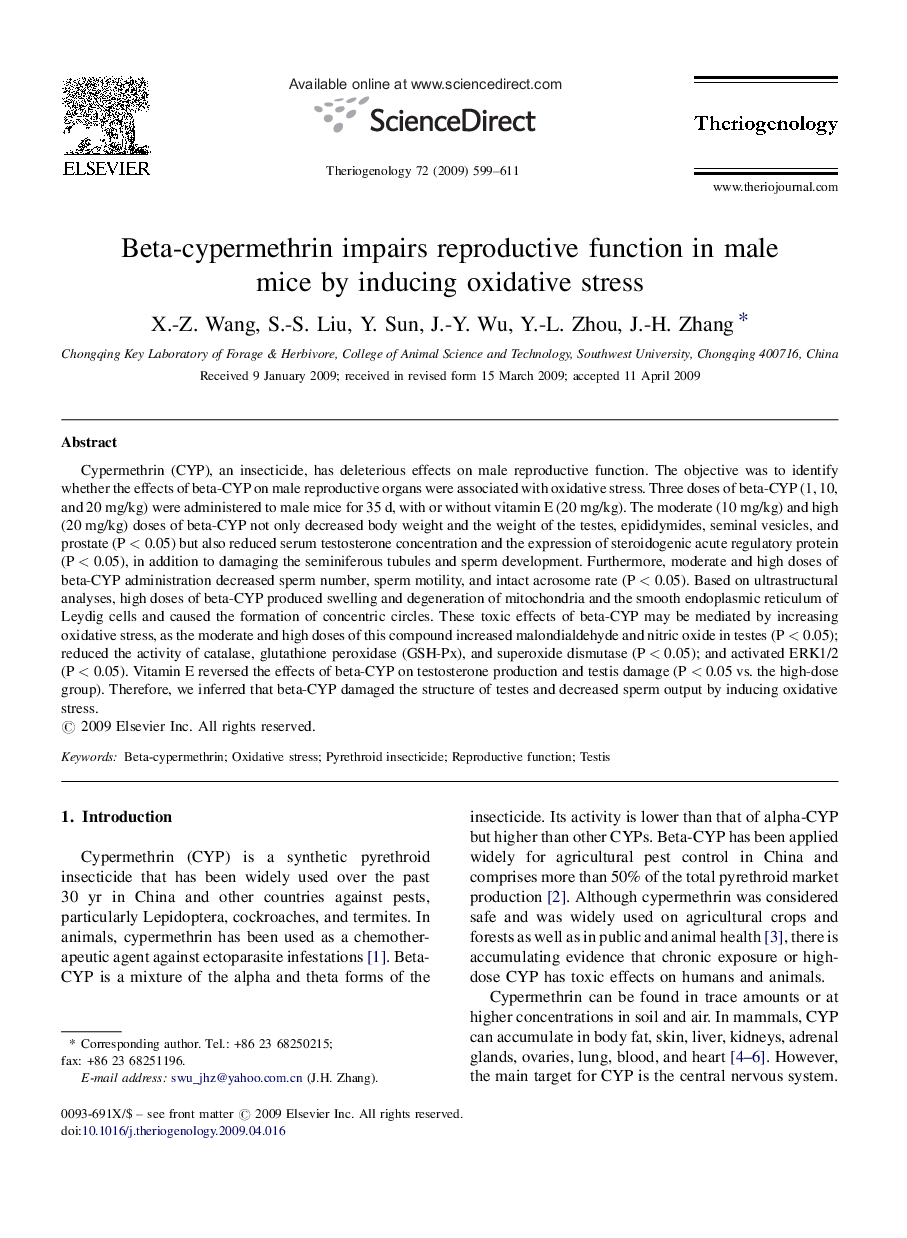| Article ID | Journal | Published Year | Pages | File Type |
|---|---|---|---|---|
| 2095625 | Theriogenology | 2009 | 13 Pages |
Cypermethrin (CYP), an insecticide, has deleterious effects on male reproductive function. The objective was to identify whether the effects of beta-CYP on male reproductive organs were associated with oxidative stress. Three doses of beta-CYP (1, 10, and 20 mg/kg) were administered to male mice for 35 d, with or without vitamin E (20 mg/kg). The moderate (10 mg/kg) and high (20 mg/kg) doses of beta-CYP not only decreased body weight and the weight of the testes, epididymides, seminal vesicles, and prostate (P < 0.05) but also reduced serum testosterone concentration and the expression of steroidogenic acute regulatory protein (P < 0.05), in addition to damaging the seminiferous tubules and sperm development. Furthermore, moderate and high doses of beta-CYP administration decreased sperm number, sperm motility, and intact acrosome rate (P < 0.05). Based on ultrastructural analyses, high doses of beta-CYP produced swelling and degeneration of mitochondria and the smooth endoplasmic reticulum of Leydig cells and caused the formation of concentric circles. These toxic effects of beta-CYP may be mediated by increasing oxidative stress, as the moderate and high doses of this compound increased malondialdehyde and nitric oxide in testes (P < 0.05); reduced the activity of catalase, glutathione peroxidase (GSH-Px), and superoxide dismutase (P < 0.05); and activated ERK1/2 (P < 0.05). Vitamin E reversed the effects of beta-CYP on testosterone production and testis damage (P < 0.05 vs. the high-dose group). Therefore, we inferred that beta-CYP damaged the structure of testes and decreased sperm output by inducing oxidative stress.
